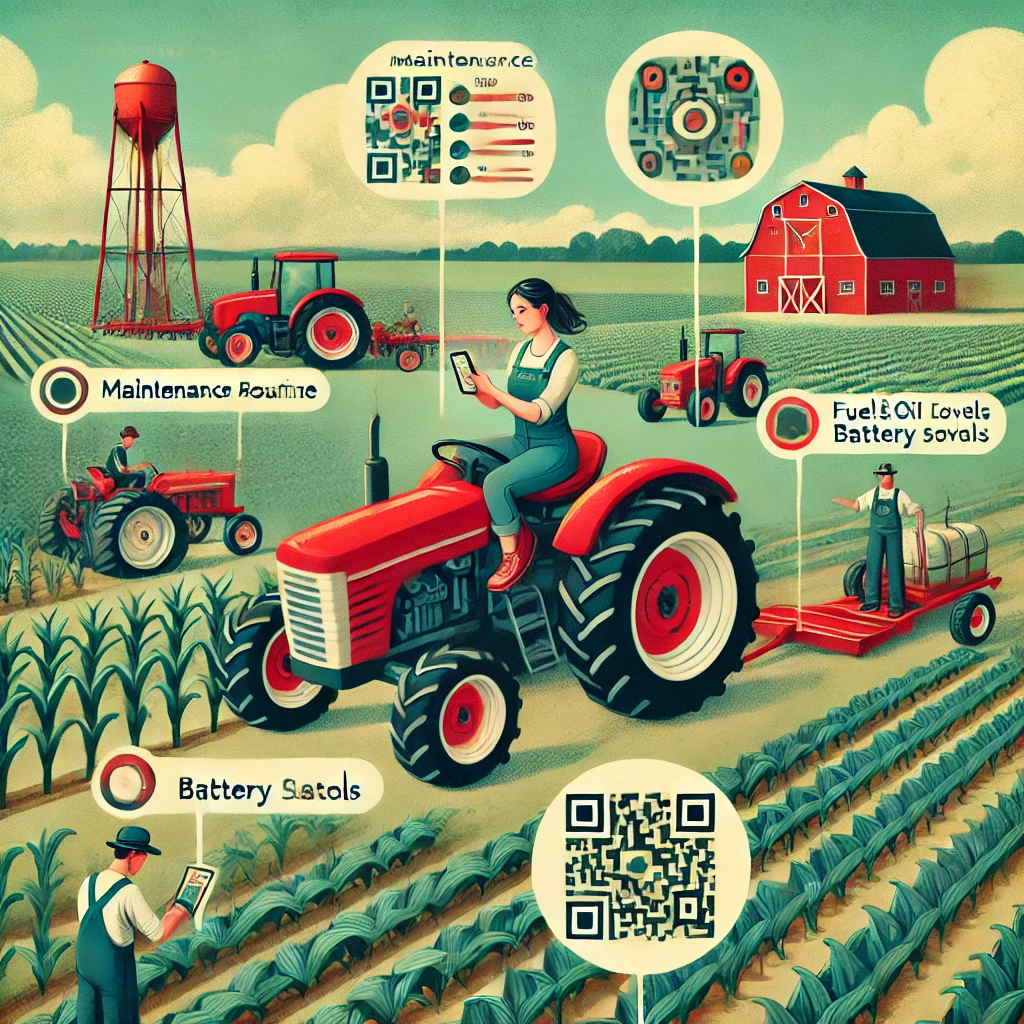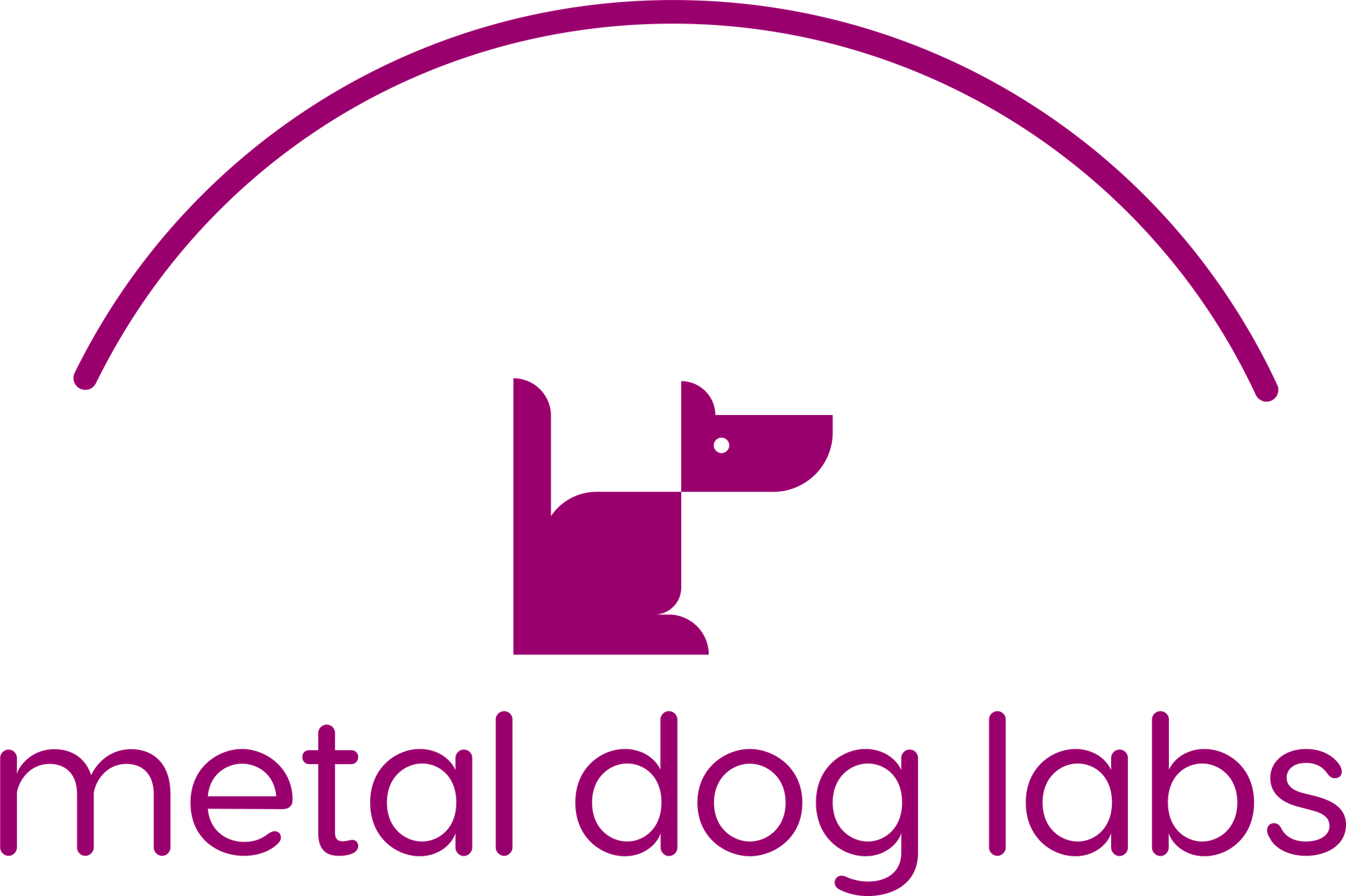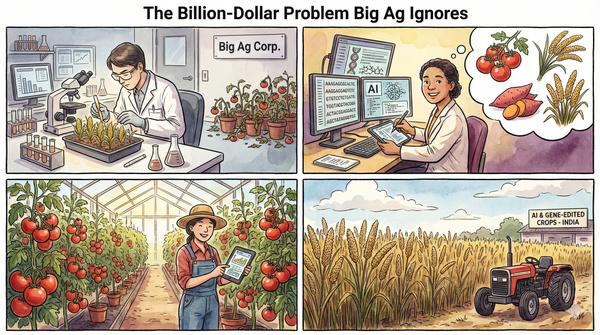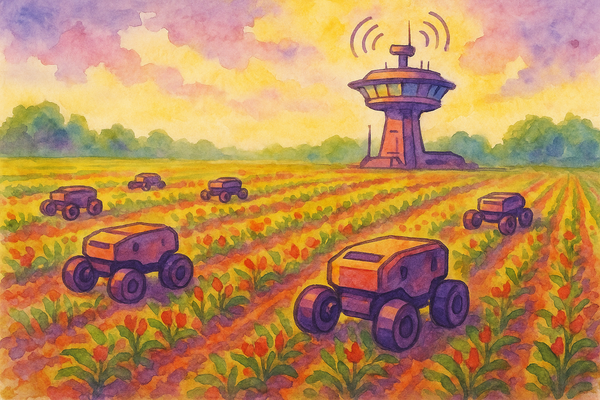Fostering a “Culture of Care” with Gripp
Tracey Wiedmeyer, CEO of Gripp provides fractional CTOs

Welcome to another SFTW Convo with Tracey Wiedmeyer, CEO of Gripp. Gripp came out of Dial Ventures from Purdue.
From independent growers to national co-ops, Gripp is focused on providing the ultimate platform for connecting operations teams, keeping tabs on their equipment whereabouts, interactions, and bringing organization to their unique collection of operational knowledge & routines.
I wanted to have a conversation with Tracey as their team did the hard work to go out and understand user problems around equipment maintenance, used the feedback to invalidate their initial hypothesis and settled on a real problem to solve, and created a new business model for their particular use case. This is a good conversation to read for startup founders, agribusiness professionals, and students.
Summary of the Conversation
The conversation touches on problem identification, user experience design, the importance of understanding user personas, and the challenges of data entry in farming operations. Tracey emphasizes the value of bringing in outside perspectives to solve long-standing agricultural problems and explores future opportunities in the AgTech sector. They discuss innovative business models that prioritize accessibility and user engagement, as well as the importance of go-to-market strategies and pricing insights. We touch on customer support systems, integration with existing technologies, cultivation of a culture of care within the agricultural sector, funding challenges in ag-tech and provide entrepreneurial advice, while highlighting future opportunities in the industry.

Tracey Wiedmeyer, CEO of Gripp (Art by EI based on a photo provided by Tracey Wiedmeyer)
Tracey’s Journey to Gripp
Rhishi Pethe (RP): Let’s start with some background.
Tracey Wiedmeyer (TW): I started my career as a software engineer. I have been an entrepreneur and startup guy for most of my life. In 2008, I launched a company, raised a ton of venture capital, and built a 3D market research platform for large brands. We helped companies like Kellogg’s visualize different shelf layouts to optimize sales—whether for Pringles, Bud Light, or other products. Our platform attracted major retailers and brands, and the business thrived for 12 years.
After leaving that company, I moved into private equity roll-ups and software ventures. I worked with IoT sensors in the waste management industry. We developed a hydraulic transducer that monitored pressure in a 40-yard compactor and alerted waste management when it was full.
That was the first time in my career where I could pack a laptop and a Crescent wrench, put on my boots, and walk onto a customer site. I grew up on a farm in Wisconsin, raising chickens, heifers, and row crops. I grew up operating tractors and heavy equipment, and I still own backhoes and construction machinery today. I even built my own house.
After the waste management company sold, I worked on another private equity roll-up, but I quickly realized it felt like lipstick on a pig—just dressing up a company to sell it. I missed building something real. That’s when I got introduced to Purdue University and their Dial Ventures fellowship. Purdue created Dial Ventures to identify unsolved challenges in ag and provide seed funding to entrepreneurs to spin out companies.
That process led to Gripp, my current company, which focuses on equipment maintenance. Since I understand the problem firsthand and still own equipment, I immediately connected with the mission. My background sits at the intersection of industrial farming, construction, and technology—a combination that has served me well.
Finding the right problem to solve
RP: Could you walk us through the Dial Ventures process?
TW: One of Dial Ventures’ core missions is to tackle long standing industry problems by bringing in entrepreneurs from outside of Ag to introduce new and fresh ideas. However, the real problems that need solving come from the people living them every day—that’s where the Purdue network plays a crucial role.
Two to three times a year, Dial Ventures brings in fellows—aspiring entrepreneurs or experienced professionals from other industries. Over the next six to twelve weeks, they walk farms, visit agri-food manufacturing facilities, tour co-ops, and engage with key industry players. Through this discovery process, they identify pressing problems and start with a list of 12 potential ideas.
As the program progresses, they whittle that list down to the top three ideas. These top ideas then go back to the Dial Fund LPs—which include major agricultural companies and Purdue leadership—who decide which challenges demand urgent solutions. The selected ideas receive venture capital funding, and a team forms around them to bring them to life.
RP: How did you land on this specific use case? What convinced you that this was the right problem to solve?
TW: Initially, the idea was that the biggest problem in ag equipment maintenance was that it was underserved or under-maintained, and the solution was something like an "Uber for farm mechanics."
Most farmers I know wouldn’t let a random mechanic onto their farm to fix their million-dollar combine. When we spoke to people, they confirmed that was true. What else makes equipment maintenance such a challenge?
Farmers told us the real issue wasn’t just fixing equipment—it was tracking and maintaining everything they own. It wasn’t just about green iron or stuff with tires—it was everything they wanted to keep records or notes on.
That led us to ask: Why hasn’t asset tracking caught on in ag?
The answers became clear: accessibility across different languages (Spanish, English, etc.), ease of use, pricing models, and other practical barriers.
Farmers told us they communicate about equipment in fragmented ways—through personal texts, WhatsApp groups, or emails. That struck me because in corporate America, those are solved problems. Companies don’t rely on personal email for critical operations—they have systems in place to retain tribal and institutional knowledge.
So we said, What if we combined asset tracking with real-time team communication?
That meant creating a system where anything—a tractor, an irrigation well, a truck, or even small tools—could be tagged with a QR code, sticker, magnet, or PVC card. All conversations, records, and history about that asset would be attached directly to it, so teams could plan better, spot trends, and train new employees faster.
We then layered team communication on top, and that combination has really resonated with farms.
RP: What can users do now that they couldn’t before? What insights or efficiencies does this unlock?
TW: Imagine you’re on a farm with multiple center pivots—some powered by electricity, others by diesel engines, since you’re leasing land across different locations. One of our users, a row crop farmer in Western Kansas, relies heavily on irrigation, which means he needs to service and change the oil on his diesel engines every month.
Originally, it was just him and his dad running the operation. But after leasing thousands of acres, they brought on four full-time mechanics—who double as operators. Operators don’t just drive equipment—they turn wrenches, haul grain, do payroll, and handle countless other tasks.
Before Gripp, he tracked everything in a paper notebook in his truck and tried to coordinate via WhatsApp or text. But information got lost—things slipped through the cracks due to infinite scroll in messages, and maintenance didn’t always happen on time.
Last summer, he eliminated all downtime simply by using Gripp. Now, with simple alerts and reminders, his entire team stays on top of maintenance.
For row crops, this solution resonates because farms often under-maintain or over-maintain equipment. Some farmers, for example, replace all fluids and filters on their tender trucks annually, spending $2,000, even though it’s unnecessary—but they do it anyway because they don’t keep records.
One of our users, a large apple grower, runs 70 forklifts across three shifts per day. Each operator is required to perform an OSHA inspection before using a forklift. Initially, they tracked inspections on paper, but compliance was low—most workers skipped the process entirely, leading to equipment breakdowns. When that happened, they had to call Papé Machinery for repairs, taking forklifts out of service for two to three days. To avoid disruption, they kept spare forklifts sitting around—which added unnecessary costs.
Now, with Gripp, inspections are quick and accessible. Operators don’t need an app or login—they simply scan a QR code with their phone to submit inspection reports. The system notifies the farm manager and warehouse manager immediately, allowing them to fix small issues (like seatbelts or brakes) before they lead to major downtime.
This same apple grower has since expanded Gripp into food safety tracking. Their five-pound bag weighers, which supply Walmart and Costco, often overfilled bags by 16%, but they weren’t catching it on paper.
Manually flipping through paper records to track weight trends was impractical, so the data was largely ignored. Now, with Gripp, they capture everything digitally, making it easy to spot trends and reduce waste.
These are all lightweight, simple use cases—but they solve real problems that have plagued farmers for years.
Gripp User Experience
RP: How did you define and approach different user personas when building your software?
You mentioned a QR code—how does that work in practice? What triggers a user to take action? How do they know they need to do something, and what happens next?
TW: About six months after launching Gripp, we joined a program called AgLaunch, which runs farm trials and offers incubation support. The biggest advantage was gaining access to farms across different landscapes—rice, cotton, row crops, specialty crops, greenhouses, you name it.
A lot of people advised us to focus on just one segment, like specialty or row crops. And generally, that’s great advice—go deep, not wide. But as we built the software, we realized that with just one or two small tweaks, we could make tracking anything easy.
Setting up Gripp for a dairy, a specialty farm, or a row crop operation isn’t that different. The real customization comes when we replicate their lightweight paper forms in digital format.
Anyone can scan a QR code—whether they have the app or not. But if you’re using the app, you get alerts and notifications.
Take the diesel engine on a center pivot as an example. The system sends a notification: "Hey, this week, you need to service this center pivot and change the oil." That task shows up on the to-do list that the whole team can see. It won’t move from “in progress” to “done” until someone completes it. Anyone can pick it up and do it, or you can assign it directly—"Hey Jimmy, can you take care of this one?"
That same Kansas farm tracks water meter readings when they do oil changes, knowing that state regulations are tightening around water usage. This lets them log usage data without extra work.
For inspections, anyone can open Gripp, scan a QR code, and log an issue—what we call canary issues:
"There’s a leaky seal."
"This bearing is squeaky."
"I see oil on the floor."
It takes just two or three taps to snap a picture and submit the report.
Now, if the farm manager is 40 miles away, they get a real-time notification. They can immediately request another picture or a different angle—all before the operator even leaves the equipment. Everyone assigned to that asset gets updated, ensuring that issues are handled before they turn into major problems.

Image generated by using ChatGPT to show a QR code enabled workflow
RP: Gripp functions as a task management tool. Users can create tasks, assign actions like "Go inspect this" or "Change the oil on this pump," and track them alongside records. Is that right?
TW: Yes. Farms can store manuals, costs, invoices, and other records, but we don’t require them to.
When a farm signs up, they don’t have to upload a full history of their equipment. It’s as simple as naming the asset, putting a sticker on it, and getting started. Some farms choose to upload John Deere manuals, parts lists, or invoices, while others keep it minimal. We never force that. We always tell folks:
"The more you put in, the more valuable the system becomes—especially in the future, when we overlay something like an LLM on top of all that data."
But at the end of the day, it’s their choice. That flexibility has been a core part of our business model strategy.
RP: You mentioned that by changing just two or three things, you could solve multiple challenges because of the commonalities across those problems.
But then you brought up forms and paperwork, where things start to diverge. Software thrives on consistency and standardized problems, but it struggles with excessive customization. How do you deliver a great user experience while avoiding runaway engineering costs and the complexity of supporting too many custom workflows?
TW: The most obvious value we provide comes from lightweight forms.
Take the OSHA example—any paper-based form a farm already uses, we can replicate digitally in Gripp. We built an internal WYSIWYG editor that works like Google Forms, making it easy to create and customize forms.
What’s even more valuable is that, with 70+ customers, we’ve built a library of forms that we can apply to new customers instantly.
For example, GAP Connections—an organization supporting canola and tobacco industries—requires an entire manual of safety and training forms. If a farmer joins Gripp and is part of that program, we can immediately provide the four or five forms they need with zero additional setup. Over time, we’ll refine and streamline this even further.
Right now, we do the form setup for farmers—partly because we’re still early-stage, but because we’ve never met a farmer who wants to sit through a two-hour training just to create a 10-minute form that they’ll rarely change.
Instead, we keep it simple: "Just message us in Gripp, and we’ll handle it."
RP: One of the biggest challenges with record-keeping systems is that if the burden of data entry is too high, people simply stop using them. A classic example is meal-tracking apps—they ask you to log everything you eat, and most people (myself included) stick with it for maybe three or four days before giving up because it’s just too much work.
TW: When we go into an operation, we index what we call their "culture of care."
On one end of the spectrum, some farms say, "I've been looking for something like this!" They care deeply about their equipment and maintenance, so asking them to scan a QR code and complete a weekly inspection is no big deal.
On the other end, some farms say, "I don’t want to ask my operators to do one more thing." They worry that if they push too hard, workers will leave for another farm, and they’re already struggling to find enough operators.
In those cases, we take more of a consulting approach, leveraging best practices from customers who do this well. We share their tips and tricks to ease adoption—starting small with weekly routines and gradually expanding over time.
We’ve built a few key features to reduce friction:
Voice Dictation – Instead of typing, operators can speak directly into their phone to log an entry.
Automatic Spanish-to-English Translation – On one Indiana dairy farm, the owner used to get one or two broken words of English in reports. Now, with automatic translations, workers provide full, detailed paragraphs, giving the owner far better visibility into what’s happening.
Lightweight Forms – We don’t ask operators to write paragraphs of text. Often, a picture is all the evidence needed. Operators can select checkboxes or radio buttons instead of typing.
These small changes make all the difference—helping operators log issues quickly and get back to work while still providing valuable insights to farm managers.
RP: You’ve talked about asset management, record-keeping, task management, and the fractional CTO concept—all of which seem to build on each other. Do you see other problems—either at the farm gate or further down the supply chain—where this fractional CTO approach could apply?
TW: A lot of our farmers tell us, "We work with trusted providers—third-party agronomists, irrigation specialists, dealer mechanics, mechanical engineers, electrical engineers—but we don’t have access to the records or history of what they’ve done."
Right now, those providers hand over a paper copy, email it to just one person, or communicate over text. The rest of the team never sees that information, so they can’t learn from it.
We’re developing a model where third-party providers can log information directly in Gripp—giving the farmer and their entire team access to those records, creating transparency and shared knowledge.
Some short-line equipment manufacturers are putting QR codes on their machines. Since they sell directly to farmers (without a dealer network), they have to support their owners themselves.
Right now, their support process is messy—text messages for diagnosis, phone calls for re-diagnosis, emails with scattered information.
While some OEMs and dealers use IT ticketing systems, they aren’t farmer-friendly and lack transparency—creating a huge disconnect.
We’re leveraging Gripp’s communication and record-keeping tools to solve this.
For example, every farmer has had that moment where they think, "I wish I had access to that manual, that YouTube clip, or that calibration guide when I was actually standing in front of the equipment."
Many manufacturers already put QR codes on their equipment, but they all redirect to the same generic website—forcing the farmer to search for the right manual on their phone.
What if scanning the QR code took them directly to the exact video or calibration guide they needed?
With Gripp, we’re making that instant access possible—scan the code, watch the video, calibrate the equipment, and get back to work.
RP: People didn’t know how to use QR codes. Phone cameras weren’t great at scanning them. Now, QR codes are everywhere—at restaurants, on products, on signs. Could you have built Gripp successfully in a different era?
TW: That was a big lever we could pull.
We kept hearing the same thing: "I know how to use QR codes." Almost no one, even older generations, says they’ve never seen one or don’t know how to scan one. That’s been a huge catalyst for us.
Another factor is the proliferation of social media apps. Even the oldest generation now texts pictures of their kids or grandkids—so they’re already comfortable with mobile-friendly workflows.
Combine that with the fact that almost everyone has a smartphone—though we do still see the occasional flip phone—and these shifts have made now the right time for what we’re building.
A different business model
RP: Can you walk us through your thought process in arriving at your current model?
TW: If you visit 100 farms, maybe two of them use non-Ag software—and those that do typically use a system that charges by asset or by user.
User-based pricing creates bottlenecks. On a farm, one or two people end up being the information gatekeepers—everyone texts them updates throughout the day, and when they finally get home at 8 or 9 PM, they have to manually enter everything into the system.
That model is too complex and doesn’t fit farm operations.
If you ask a farmer, "How many assets do you own?" they immediately feel anxiety.
"I have 20 locations… 40 tractors… I don’t even know."
When faced with that question, they default to tracking only their most expensive assets—tractors and trucks—ignoring everything else.
We eliminated per-user pricing because we want the whole team involved. Farmers already pay their employees to use their equipment—so why limit who can track and manage it?
For assets, we use buckets of QR codes instead of forcing farmers to predefine every piece of equipment. We offer monthly pricing starting at $99/month, with no requirement to list assets upfront.
Need to tag a truck? Slap on a QR code.
Service equipment 40 miles away? Onboard it in two or three taps—done.
Many farm management systems still charge by user, which may work for a desk-based team in a corporate office. But operator-first apps in Ag need a different model.
RP: Can you talk about your go-to-market strategy? What was your process for discovering willingness to pay? How did you arrive at the decision that X dollars per month was the right structure?
TW: When we started, my background was enterprise software, so I literally told farmers, "We're going to charge you $75,000 a year." That went over as well as you’d expect—most of them just looked at me and said, "Why are we even having this conversation?" That was a wake-up call.
We knew we had to find the right balance—it wasn’t going to be $5 a month, but it couldn’t be enterprise-level pricing.
We noticed that larger farms using farm management systems typically had contracts in the $8,000 to $15,000 range. That set a ceiling for what we could charge at the high end.
From there, we scaled it down:
$7,500/year for large operations
$3,500/year for medium-sized farms
$99/month ($1,000/year) for smaller farms
$9/month hobby tier for anyone managing a small operation, even outside Ag
The consistent feedback we got was: "Okay, I can make that decision today."
We know we’re underselling Gripp, but because the problem is so universal, we see huge potential for scale. Instead of just targeting the top 2-3% of farms, we want to reach every farm that could benefit—helping them stay in business longer, optimize operations, and scale effectively.
Even at $7,500 a year, we can’t sell DIRECTLY to every farm—that would never be profitable. So we built a multi-pronged approach:
Digital Sales – We sell like other software companies outside Ag. Farmers can visit our website, enter their credit card, and sign up instantly. We ship the tags, and they’re up and running. The challenge is figuring out where farmers hang out online to advertise effectively—but this will likely capture smaller farms.
OEM & Dealer Networks – We’re piloting distribution partnerships with OEMs and dealers. If that succeeds, we’ll be one step away from scaling—because when a farmer buys a million-dollar combine or grain bin, they’re likely to expand the tool across their entire operation.
RP: How do you ensure your solution works for existing equipment, not just new purchases? How do you tap into that market and drive adoption for equipment that’s already in use?
TW: We’ve signed—or are about to sign—half a dozen partnerships with organizations that already have boots on the ground, visiting farms and selling other products or member benefits.
These partnerships have been a huge catalyst in helping us gain access to new customers. As everyone in Ag knows, word-of-mouth can make or break you. If you don’t deliver on your promises, farmers will talk about it—and not in a good way. But if you do what you say, they’ll spread the word for you.
We’re leveraging that with referral-style incentives inside the mobile app—Scan a QR code, Invite your neighbor, Earn rewards. It’s a natural extension of how trust and adoption work in agriculture.
RP: How do you incentivize people to sell Gripp, especially those already selling other products to farmers?
If I’m already selling a $250,000 piece of equipment, why would I prioritize selling something far smaller in value?
TW: There are two key groups we work with in these cases.
Existing Software Sellers (Smaller Group): This is a much smaller segment, but these folks already understand reselling and revenue-sharing models. With them, the conversation is more straightforward—we talk about how a long-term revenue stream builds over time. Since Gripp has had zero churn since launch, they know the more customers they bring in, the more they make.
Everyone Else (Simple Referral Process) For everyone else, we keep it dead simple. If someone opens the door for us—maybe through a co-op or another group—we handle the rest. They get a referral code, and that’s it. We take care of the outreach, the sale, and the onboarding.
This lets us cater to both groups effectively—those who know software sales and those who just want an easy way to introduce Gripp without extra work.
RP: You’re helping farmers and operators manage records, tasks, and equipment maintenance more efficiently. One of the biggest frustrations in equipment management is timely and continued access to support. Your product is software-based. What are the customer expectations around response time and issue resolution?
TW: Every customer gets in-app support inside Gripp. Customers can reach out directly in the app, and we can help them on the spot without pulling them out of their workflow.
For larger customers or those nearby, we take a hands-on approach. I’ll jump in my truck, my co-founder does the same, and we’ll go shake their hand. We hop on calls and on-site visits whenever possible.
So far, inbound support requests have been surprisingly low, which has been a huge win. That’s something we care about deeply, but as we scale, we’ll need to replicate this model effectively.
We know Gripp isn’t the be-all-end-all for hardware-based data collection. If farmers need deep data, they already have people who can dig into the specialized systems built for that. But here’s the issue—farmers own equipment from multiple brands, and maintenance gets overlooked across the board.
Center pivots, tractors, trucks, grain bins—every brand has its own data-rich ecosystem, but very few offer true maintenance capabilities. Even if they did, a farmer isn’t going to use one app for their green equipment, another for their red equipment, and a third for something else.
That’s just too complicated for the operator on the ground—and it makes farm management worse, not better.
Outside in or inside out?
RP: Earlier, you mentioned that the venture group intentionally brought in people from outside the industry?
What unique perspectives or advantages do outsiders bring to the table? And on the flip side, what are the drawbacks of having non-industry folks drive innovation in AgTech?
TW: We often say, "What farmers really need is a fractional CTO." Many don’t know what’s available, what’s possible, or how technology can drive ROI and growth for their operation. That’s a huge opportunity—figuring out what a real CTO role looks like on a farm.
Right now, the default CTO on most farms is just the youngest person in the operation. They bring a tech-savvy mindset, but that’s not enough to fully optimize a farm’s digital tools and systems.
We’ve been fortunate to take the right lens with Gripp—borrowing what works from corporate America while adapting it to Ag.
For example, communication is something corporate America solved long ago—but what they haven’t solved is building easy-to-use, language-agnostic, highly accessible software that actually fits the way farmers work.
One thing we’ve focused on at Gripp is making our app feel familiar—like WhatsApp, text messaging, and photo-sharing tools farmers already use. Because of that, we rarely need extensive training—people just pick it up and start using it.
That’s what builds trust, adoption, and long-term usage. It’s about bringing the best of corporate America into Ag—but doing it in a way that actually works for farmers.
RP: Looking at the broader industry trends, there’s ongoing debate about whether VC funding is even the right model for AgTech.
TW: There are plenty of successful venture-backed AgTech companies—Carbon Robotics, and others—that are heading toward strong exits. But the number of companies that don’t make it is much higher compared to FinTech, MarTech, Crypto, or other sectors.
I’ve been on both sides—inside and outside of Ag—and investor expectations in AgTech often aren’t pragmatic or realistic. We’ve been very fortunate to have farmers on our cap table, as well as investors who understand Ag’s longer timelines and unique risks.
In contrast, I’ve pitched hockey-stick growth outside of Ag, successfully raised large rounds, and ultimately failed to deliver on those unrealistic trajectories. I’ve been in the position where you walk away with peanuts and a six-pack, and honestly, that sucks.
I deeply value investors with patience—those who understand that Ag moves at its own pace. AgTech attracts outside investors because they see a massive market and get excited by hockey-stick pitches—but without understanding Ag’s complexities, many won’t come back after one bad experience.
I’ve spoken to so many of these investors while fundraising, and most won’t return to Ag simply because they didn’t know what questions to ask in the first place. I’ve heard the argument that many successful AgTech companies have mostly non-Ag investors on their cap table. That’s true in some cases. I could point to 10x more where those investors got burned and never returned.
That’s why deep expertise in Ag matters—it helps the right entrepreneurs succeed and ensures capital goes to the right companies. Maybe scarcity of capital is a good thing in some cases—it forces better decisions and funnels funding to the companies that actually deserve it.
We need to keep talking about this. Maybe the answer is venture debt, maybe it’s a new funding model. I don’t have the solution, but I see very smart people trying to solve it, and we should keep the conversation going.
Future Casting
RP: Where do you see big opportunities that offer both impact and strong returns? What problem areas should investors and entrepreneurs be paying attention to right now?
TW: There’s a lot happening in robotics. The drone space might feel overplayed, but it continues to surprise with the latest advancements.
Outside of equipment, I see big shifts happening in business models—co-ops, ag retailers, seed-selling businesses
These sectors are undergoing changes and will have to innovate in ways they haven’t before. With the current political environment, I think we’ll see a push toward more localized growing models—new grower associations, stronger co-ops, direct-to-consumer food networks
People want healthier food, sourced as close to the farmer as possible. The middle layer—distribution to manufacturing—is already starting to hollow out, and some companies are stepping in to tackle that gap. I think we’ll see a lot more movement in this space.
RP: What's next for you and Gripp?
TW: We’ve got a lot of irons in the fire—especially with small distribution, sales, and marketing experiments. We’re seeing strong inbound traction around the idea of connecting third-party farm networks. We’ve got some platform work ahead to support that, and we’re prioritizing it. And, as I always say—software is never done.
This problem isn’t just in Ag. We get pulled into other industries, because any small-to-medium-sized, blue-collar industry faces the same challenges. They can’t afford complex, six-figure, enterprise-level software, so they’ve been overlooked.
We’ll tackle those industries over time, but for now, our focus remains on Ag and building out the right foundation.
Customer Conversation
Startup founders and CEOs are always in sales mode. Many of them believe they have the best solution for the problem they are solving. Startup CEOs need this optimism and belief to do one of the hardest jobs out there. Due to this, when I talk with a startup CEO, I do want to connect with someone who is using their products to get an independent and objective opinion.
For Gripp, I spoke with Rob Mize, who works as a maintenance manager at a fruit company in the state of Washington. Rob spoke about the ease of use of Gripp, ability to capture data from a predominantly Spanish speaking employee base, and reduction in unplanned maintenance through the use of Gripp. Rob is looking for more features and functions from Gripp in terms of analytics and insights, which help him and his team to make better, timely, and more informed decisions.





